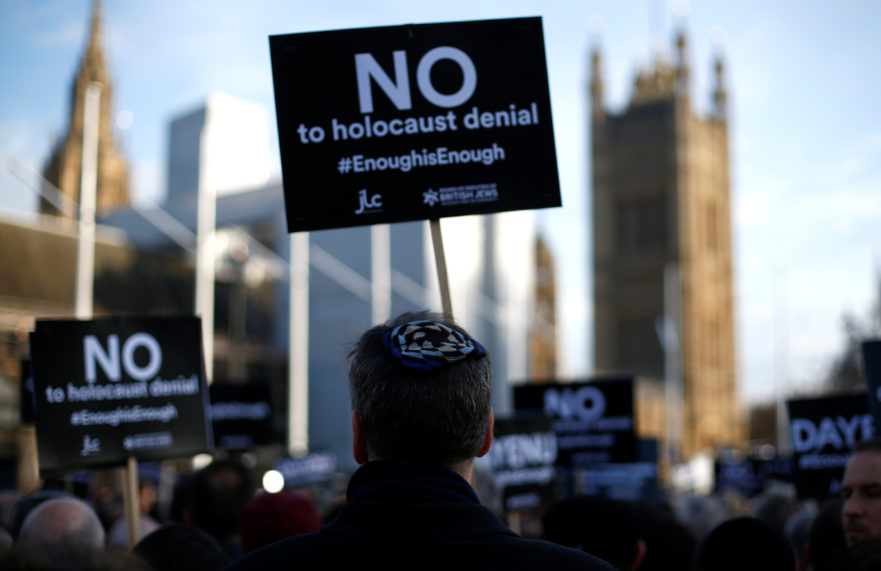Across France protestors recently rallied in solidarity against what appears to be a growing trend of anti-Semitism in the country and throughout Western Europe. Earlier this month, nearly 100 graves were desecrated with swastikas in a Jewish cemetery near Strasbourg. This follows other incidents in the region in December, including another cemetery where tombstones and a Holocaust memorial were vandalized.
France is home to the largest Jewish community in Europe, so this resurgence of anti-Semitic activity has residents and French officials on edge. French Interior Minister, Christophe Castaner, reports that the number of anti-Semitic acts in France increased 74% last year, from 311 in 2017 to 541 in 2018. The French Minister of Education is investigating harassment of Jewish schoolchildren leaving public schools for the safety of private Jewish schools. And President Emmanuel Macron made a personal visit to the Strasbourg cemetery last week, telling residents, “It is important for me to be here with you today.”
Macron has noted that new and increased acts of anti-Semitism are not only happening in France, but in all of Europe and most Western democracies. Germany also reported 1,646 anti-Semitic acts last year, representing a 10% increase and the highest level of offenses in a decade. Indeed, Deborah Lipstadt, professor at Emory University and noted author of several books on anti-Semitism, writes that Jews across Europe are now encouraged to cover their kippah, and most synagogues require protection by police officers.
“The old anti-Semitism is back – and getting worse,” said UN Secretary-General António Guterres last month on the International Day of Commemoration in Memory of the Victims of the Holocaust.
The European Union’s Fundamental Rights Agency recently released results of a survey of 16,000 Jewish people in 12 European countries. Ninety percent of respondents felt anti-Semitism is growing, and 30% reported having been harassed. Over one-third of respondents avoid going to Jewish events or sites because of safety concerns, and almost 80% do not report minor incidents because they believe nothing will change.
The old anti-Semitism is back – and getting worse
Ronald S. Lauder, president of the World Jewish Congress, recently said, “This is a turning point, right here and right now. Europe has a choice. We must work together. Anti-Semitism is not, and cannot remain, just a Jewish problem. This is an issue that affects all Europeans, and Western society as a whole.”
For its part, the U.S. has responded to concerns of growing anti-Semitism in Europe with the appointment earlier this month of Elan Carr to serve as the U.S. Special Envoy to Monitor and Combat Anti-Semitism. In this role — a diplomatic position that has been vacant for two years — Carr brings new urgency to the direction of U.S. policies and projects aimed at countering anti-Semitism around the world. Last week Carr visited Israel and told the Jerusalem Post that, “the rise in anti-Semitism is an urgent crisis…the worst since the Holocaust.”
Take Action:
- Thank your Representative for recently passing R.672, the Combating European Anti-Semitism Act of 2017
- Contact Elan Carr, U.S. Special Envoy to Monitor and Combat Anti-Semitism about your concern in the rise of anti-Semitism in Europe at: [email protected]
- Visit the U.S. Holocaust Memorial Museum website to learn how you can confront hate and anti-Semitism
Photo credit: Reuters

